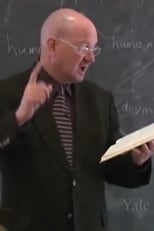Yale Courses - This course approaches the New Testament not as scripture, or a piece of authoritative holy writing, but as a collection of historical documents. Therefore, students are urged to leave behind their pre-conceived notions of the New Testament and read it as if they had never heard of it before. This involves understanding the historical context of the New Testament and imagining how it might appear to an ancient person.
E1: Introduction: Why Study the New Testament?▶ PLAY
E2: From Stories to Canon▶ PLAY
E3: The Greco-Roman World▶ PLAY
E4: Judaism in the First Century▶ PLAY
E5: The New Testament as History▶ PLAY
E6: The Gospel of Mark▶ PLAY
E7: The Gospel of Matthew▶ PLAY
E8: The Gospel of Thomas▶ PLAY
E9: The Gospel of Luke▶ PLAY
E10: The Acts of the Apostles▶ PLAY
E11: Johannine Christianity: The Gospel 92,407 views▶ PLAY
E12: Johannine Christianity: The Letters▶ PLAY
E13: The Historical Jesus▶ PLAY
E14: Paul as Missionary▶ PLAY
E15: Paul as Pastor▶ PLAY
E16: Paul as Jewish Theologian▶ PLAY
E17: Paul's Disciples▶ PLAY
E18: Arguing with Paul?▶ PLAY
E19: The "Household" Paul: The Pastorals▶ PLAY
E20: The "Anti-household" Paul: Thecla▶ PLAY
E21: Interpreting Scripture: Hebrews▶ PLAY
E22: Interpreting Scripture: Medieval Interpretations▶ PLAY
E23: Apocalyptic and Resistance▶ PLAY
E24: Apocalyptic and Accommodation▶ PLAY
E25: Ecclesiastical Institutions: Unity, Martyrs, and Bishops▶ PLAY
E26: The "Afterlife" of the New Testament and Postmodern Interpretation▶ PLAY
